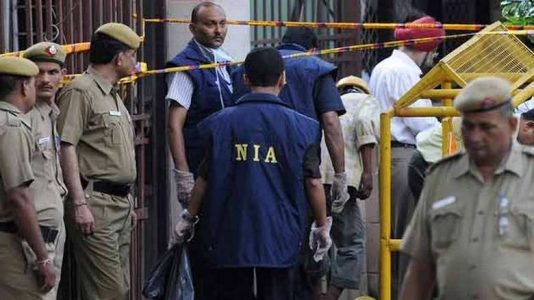
Islamic State threat to India and Bangladesh after new chief named
Amid developments after the Easter Sunday bombings in Sri Lanka which claimed 253 lives, a Daesh affiliate group, “Al-Mursalat”, has been reportedly planning to carry out similar attacks in India and Bangladesh with its announcement of appointing a new “emir” (chief) in Bengal, sources said.
The emir of the Daesh group, an intelligence official said, has been named as Abu Muhammed Al Bengali who has been given the responsibility of planning terror attacks and recruiting new members.
Citing a poster released by the Daesh, the official, requesting anonymity, said the group has warned that their “soldiers of Khalifa in Bengal and Hind are not silenced” and that the “thirst for revenge is never to be faded away.”
The threat came to light soon after a minor explosion near Gulistan theatre in Dhaka on Monday evening, in which a few police personnel suffered injuries. No casualties were reported in the blast.
The two developments followed a “propaganda” video released for the first time in five years by the fugitive Daesh leader Abu Bakr Al Baghdadi in which he acknowledged the terrorist group’s defeat in the Syrian town of Baghuz, another anti-terror official said.
Looking heavier than when he proclaimed the existence of the now-collapsed caliphate in mid 2014, Baghdadi blamed its demise on the “savagery” of Christians in the 18-minute video in which he was seen sitting cross-legged alongside a Kalashnikov rifle and appeared to be limited in his movements.
“Truthfully, the battle of Islam and its people against the cross and its people is a long battle.
The battle of Baghuz is over. But it did show the savagery, brutality and ill intentions of the Christians towards the Muslim community,” Baghdadi said in the video.
The Daesh released a statement in Arabic in the early hours of Tuesday through its mouthpiece Amaq.
Indian intelligence agencies have been closely monitoring the developments in Bangladesh and they suspect that the Daesh may carry out “jihadi” attacks in Bangladesh or West Bengal.
Officials close to the investigation have raised an alarm that some Bengali posters were in circulation in West Bengal and Bangladesh to radicalise those who were pro-Daesh sympathisers.
The poster, officials said, read “Shighroi Aschhe (coming soon), Inshallah.”
“The posters are being circulated on Telegram flashing the logo of a group called Al Mursalat. The threat cannot be ignored as a little-known militant group, National Thowheeth Jama’ath (NTJ), affiliated to the Daesh was instrumental in the Sri Lanka bombings and their links have been found in a recent unearthed group in Kerala’s Kasaragod,” another official said.
He said that another group, Jamaat-ul-Mujahideen Bangladesh, which also reportedly pledged allegiance to the Daesh, was also active in Bangladesh for years and may be a threat to West Bengal where Bangladeshi people frequently travel.
The April 21 attacks on three churches and three luxury hotels in Colombo and elsewhere killed 253 people, including 11 Indian nationals and some foreigners, besides injuring 500 others.
Fifteen people, including three suicide bombers, died during a raid by Sri Lankan security forces on April 26 and nearly 100 people have been detained in the island nation.
The Daesh claimed responsibility for the bombings and released a video that showed alleged plot organiser and suicide bomber Zahran Hashim and seven other men pledging allegiance to Daesh chief Abu Bakr Al Baghdadi.
Source: Khaleej Times





